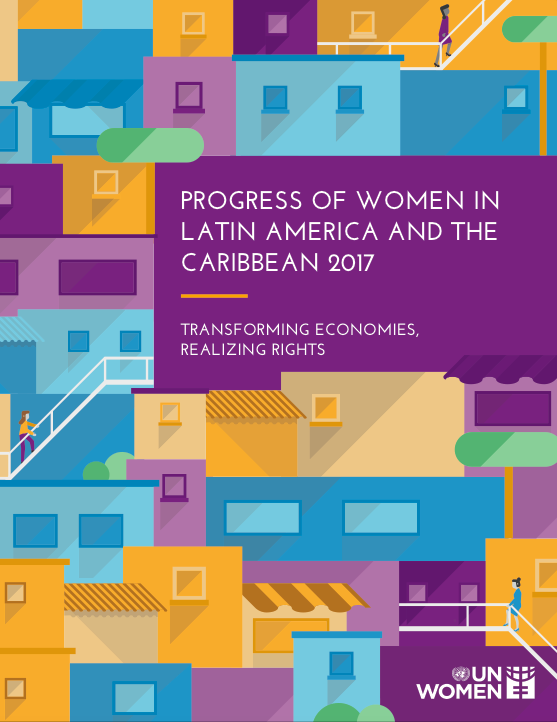
Progress of Women in Latin America and the Caribbean 2017

Summary
Preventing setbacks, overcoming obstacles and advancing the economic empowerment of all women.
Latin America and the Caribbean stand at a significant juncture for achieving women’s economic empowerment. Following a period of prosperity, social progress and democratic deepening, many countries are experiencing economic slowdown or even recession, social polarization, distrust in government and, in some cases, political crises. External factors further contribute to the gravity of this moment, such as falling commodity prices, protectionist tendencies, uncertainty about the sustainability of remittance flows and possible changes to immigration policies.
Against this backdrop, women’s economic empowerment must be placed at the centre of the public agenda in order for the region to build economies that are not only more prosperous and resilient but also more equitable. Those responsible for the formulation of public policies face a dual challenge: to protect the gains women have made against the economic downturn; and to overcome the persistent obstacles to their economic empowerment.
The progress women have made in the region during the last two decades is indisputable but so too are the persistent gaps—not only between women and men but also among women themselves. As this report shows, both women’s achievements and the constraints on their economic empowerment reflect the deep socioeconomic inequalities that are characteristic of this region and are exacerbated by patriarchal family relations and violent patterns of behaviour. These inequalities —which are strongly influenced by diferences in geographic location and ethnic origin—are obstacles that must be overcome if economic empowerment is to be achieved for all women.
Based on the analysis of the progress women have made over a quarter of a century (1990-2015) and the remaining challenges they face today, this report offers six key strategies to overcome remaining obstacles and advance women’s economic empowerment in the region:
• Recognize, reduce and redistribute unpaid care and domestic work;
• Establish universal and gender-responsive social protection systems;
• Create more and better jobs and transform labour markets for women’s rights;
• Promote egalitarian family relationships that recognize the diversity of households and the rights and obligations of their members;
• Create the conditions for women to fully enjoy their sexual and reproductive rights; and
• Contain the adverse e ects of economic slowdown on gender equality.